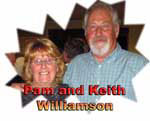 |
 |
Shopping The first thing we discovered was the difference in opening hours. Apart from supermarkets and large commercial centres, shops close during the siesta hours - normally between 1:30 and 4:30 but can vary by half an hour or so. They then stay open until 7 or later. Shops in small towns are closed Saturday afternoons and all day Sunday. Even in the cities shops are closed Sundays except in tourist areas. During the Summer months and at Christmas supermarkets open Sundays otherwise they are closed. There are a few shops and garages that open 24 hours. Banks are open from about 9am until 2pm except for one day per week when they may open in the evening. During Summer months some shops will stay closed during the morning e.g. our hairdresser isn't open mornings during July and August because he takes his children to the beach then. Our local Post Office used to open 9-11 am Monday to Friday and 9:30-11am Saturday. It is now open unitl 2:30pm with a break between 11:00 and 11:30am. English shops tend to keep to the hours you would expect back in the UK and don't close for siesta. There are a lot of small shops called Todos which sell almost anything. Apart from that, the shops tend to specialise. There are very few department stores but then the hypermarkets sell mostly all that you need. The exception are the El Corte Ingles department stores which can be found in most large cities. The largest and most plentiful shops are the hardware stores and the furniture shops. Then there are the markets which tend to be open from about 9am to 1:30pm. In the small towns the markets tend to be mainly for food produce with a few stalls selling clothes and other articles. In the tourist areas markets tend to be more varied selling anything from paintings to pets. A recent introduction is the car boot sale which is of course an English import and tend to happen on Sundays. We now have shopping complexes which tend to be located outside of large towns and cities. Like in the UK they include a lot of fashion shops. They do have excellent parking facilities though and include bars and restaurants to complete the shopping experience. The only shops licensed to sell tobacco are the estancos. They also sell stamps. Other shop, supermarkets and bars have cigarette machines. The estancos are passed on from generation to generation within the family. Chemists are privately owned and small. There is no equivalent of Boots. In fact there are very few chain stores like BHS and WH Smiths in Spain. Lots of jewellery and shoe shops but very few book shops.Some shops in small towns may be difficult to find. For example there is a baker's in Bigastro which is just a house doorway. Everyone knows it is there except visitors. Spanish people tend to eat manly fresh produce so there are very few frozen food shops. Bars and cafes can be very unpredictable. During fiestas and holidays they will all be open otherwise they may well decide not to open even at night when they would expect most of their trade. Like shops, they take their holidays in August or September and are shut for the whole period. Some bars are just open in the mornings because Spanish people tend to have their breakfast on the way to work. Although most shops will accept debit and credit cards they mostly prefer cash. Spanish people tend to pay for a lot of things with cash including expensive items like cars. Some of the people we have met even made the last payment on their houses in cash. We can only leave you to speculate why the Spanish people prefer to use cash. Our biggest problem when we first arrived though was food shopping. We went to Eroski which is a large hypermarket on the way to Orihuela and just stood there trying to work out a week's menus. There were plenty of pizzas, varieties of chorizo and whole hams but you can't live on just those. The fish counter was amazing and perhaps the best part of the food department. Spanish people fry a lot of their meat so the cuts tend to be thin - not ideal for barbecuing. They also cook a lot of stews and casseroles using the wide variety of beans and pulses that they stock along with almost every part of a chicken or a pig. Beef tends to be just steak or mince and there is very little lamb available. Pamela isn't a great fish lover so the abundance of fresh fish is wasted on her. She is put off by the smell and the fine bones that some fish have. Gradually the process has become a lot easier and we know have a diet which combines Spanish food with food prepared the English way. We stil indulge ourselves from time-to-time on such luxuries as pork pies and we buy some of our meat from the English butcher who sells, among other things, thick cut pork chops, a variety of sausages, pies e.g. steak and kidney, black pudding and lamb steaks. We also buy English tea bags, Heinz baked beans, HP sauce and cheddar cheese.
|


